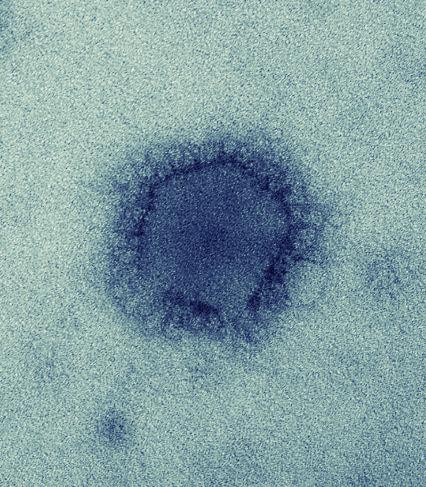German researchers report that scores of people who had contact with a man who was treated in a Munich hospital last March for Middle East respiratory syndrome coronavirus (MERS-CoV) escaped infection, suggesting that infection control measures used in the hospital were effective.
The report in Emerging Infectious Diseases also says the patient, from the United Arab Emirates, was a camel breeder and had contact with a sick camel shortly before he fell ill. Camels are suspected to be a source of the virus in humans, but the link has not been clearly established.
The patient, age 73, was transferred to the Munich hospital on Mar 19, 2013, 11 days after his symptom onset. MERS-CoV was suspected on Mar 21 and confirmed on Mar 23, and the man died 3 days later.
Family members stayed healthy
In a subsequent contact investigation, health authorities identified 83 people who had been exposed to the patient, including four family members and many healthcare workers (HCWs). Ten contacts had a respiratory symptom or fever, but tests of respiratory and serum samples were negative for MERS-CoV or antibodies to the virus.
In addition, 53 of 71 asymptomatic contacts had serologic tests, all with negative results. The family members, who were deemed at high risk, remained asymptomatic, and all had negative test results on respiratory and serum samples.
The researchers found that HCWs increased the use of protective masks and decreased contact with the patient after MERS-CoV was suspected. They said the results suggest that the use of respiratory protection and other precautions, and perhaps decreased infectiousness in the late stage of illness, may have kept the virus from infecting HCWs.
The report also says one of the patient's camels was said to have had a respiratory illness in the 2 weeks before he got sick and that bats were known to live in his neighborhood. MERS-CoV is closely related to coronaviruses found in bats.
OIE asks for more research
In other developments, the World Organization for Animal Health (OIE) recently updated its questions and answers on MERS-CoV.
The updated version says further research is needed to understand the significance of the recent detection of the virus in three camels linked to human MERS cases in Qatar. The OIE says the most reliable way to confirm the virus in an animal is to sequence the full genome or to culture the virus.
In the Qatar findings, three camels were determined to be infected with a MERS-CoV that was very similar but not identical to the strain found in two people, both associated with the farm where the camels were kept.
Second study: Drug combo failed
In still other news, a Saudi Arabian team reported today that the combination of ribavirin and interferon was ineffective in treating five critically ill MERS-CoV patients.
US researchers reported last September that the combination of interferon-alpha-2b and ribavirin seemed to reduce illness severity in rhesus macaques infected with MERS-CoV. Their small study was reported in Nature Medicine.
The Saudi team, writing in the International Journal of Infectious Diseases, said all five of their patients had acute respiratory distress syndrome and were on mechanical ventilation and corticosteroid treatment when the combination interferon-ribavirin therapy was begun. None of the patients responded to the treatment, and all died, the report says.
"While ribavirin and interferon may be effective in some patients, our practical experience suggests that critically ill patients with multiple comorbidities who are diagnosed late in the course of their illness may not benefit from combination antiviral therapy as preclinical data suggest," it states.
"There is clearly an urgent need for a novel effective antiviral therapy for this emerging global threat."
See also:
Jan 2 Emerg Infect Dis report
OIE Q &A on MERS-CoV
Dec 16, 2013, CIDRAP News story on infected camels in Qatar
Sep 9, 2013, CIDRAP News item "Study in macaques shows promise for 2-drug MERS therapy"






















